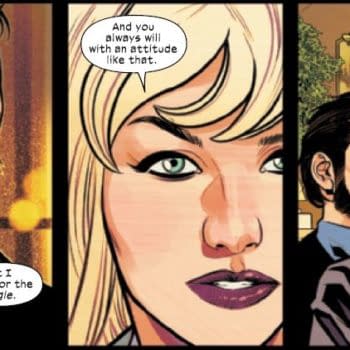Posted in: Comics | Tagged:
Joe Shuster, Penniless In 1952

"Since the defendant is presently unemployed and states that he has no assets, the judgment is deemed presently uncollectible and no further action remains to be taken at this time."
Putting that in context, that's fourteen years after Superman debuted in Action Comics #1, and four years after Siegel and Shuster settled a lawsuit against DC for $94,000.
According to Gerard Jones in Men of Tomorrow: Geeks, Gangsters, and the Birth of the Comic Book, the bulk of the settlement went to their lawyer. Siegel and Shuster's Funnyman comic was launched to no success this same year, and ended.
Siegel scraped by with a little script work and an art director job for Ziff Davis comics during the subsequent period, though there are no post-Funnyman credits listed for him in comics.org until 1950.
Again according to Jones in Men of Tomorrow, Shuster's eyesight was already starting to fail him by the time of their creation of Funnyman, and there are no credits in comics.org for Shuster after Funnyman until 1953 (in other words, AFTER the attached letter).
It paints a sad picture of Shuster facing a hard time working due to poor eyesight, meager funds from the 1948 settlement running out, finally compelled to get back into the game despite eye problems as his debts start to catch up with him.
From 1947, there's also an earlier letter auctioned in which Shuster details the status of their case against DC Comics and stalling tactics.
Yesterday, according to THR, courts found against the Siegel estate and for Warner Bros, confirming the validity of a 2001 agreement. However the Judge gave the Siegels some cause for hope.
"The Siegels' breach and repudiation defenses do not affect the enforceability of the agreement, but rather constitute grounds for termination or a breach-of-contract action."
…
The judge further notes that the heirs might make a proper case by arguing in a separate breach-of-contract lawsuit that Warners failed "to provide a royalty statement to the Siegels by March 31, 2001, as agreed in the October 19, 2001 Letter, and failed to pay or offer to pay the Siegels their royalties."
Handy to get hints and tips from the judge…












